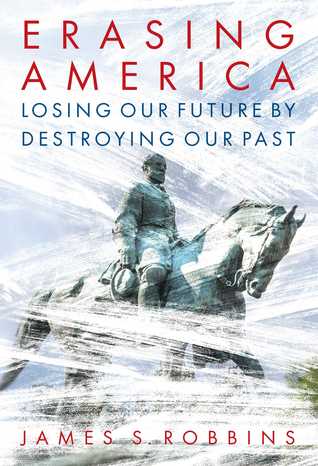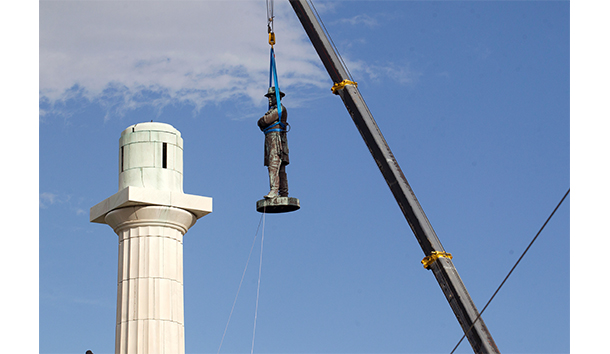With the Midterm Elections safely behind us, should we count on the left to renounce the fun of castigating nonleft types for their racism, sexism, and hetero normativism? Not on a bet.
We’re at a new place in the world. I mean a world that, especially in its European components—this includes, naturally, us—has to widespread and newfound horror been spreading civilization around the globe. Civilization, alas, of a special character: founded on belief in a Creator-God and His divine will; on procedures that guarantee freedom and justice insofar as possible; likewise, founded on respect for norms of human behavior, including those that—to the present century’s special shock—define right relationships between men and women.
The Greeks, who erected and embellished the plinth for that great monument we call civilization, had a word for the reaction to their achievement, and the achievements of the many who came in their train. The word is anarchia. And, oh, what a day anarchia appears to be having after so much general (as distinguished from constant) respect for the ideals of the good life.
Anarchy, as we naturally understand it, is the condition that obtains when somehow the old rules have been smashed to dust and no logical replacement is pending. If not quite arrived at that unfortunate destination, we have nevertheless a commanding view of the terrain. James Robbins hands us the binoculars, pointing out particulars that give no joy. The scene differs in no material way from the one Robert Bork showed us in his classic The Tempting of America, two-and-a-half decades ago. Our cultural accelerator appears stuck, or how else explain Donald Trump?
The dust jacket of Robbins’ book nudges us toward realization of what’s afoot. There’s a noble statue of Gen. Robert E. Lee astride Traveler, his great horse. He could be riding toward the present, a symbol of dignity and Christian fortitude; he could, more likely, be riding away from us, his work and witness finished, his accomplishments annulled by history.
I think the statute depicted must be the one in Charlottesville, Virginia, around which, in the summer of 2017, contending political factions, none very attractive, battled for public attention: supposedly over the traditions of the Confederate States of America. The “antifascist” left has defined Lee as one of the reactionaries moderns must scorn rather than exalt. The Charlottesville statue still stands. I am minded, accordingly, to suggest that a more telling dust-jacket photo than that on the front of this book would have been that of a forlorn public park in Dallas, actually denuded of a Lee statue during an hysterical moment shortly after the Charlottesville rampages. “Get him outta there!” was the cry of local progressives—who succeeded in that dire mission, with the unbecoming help of a wimpy Democratic mayor. The statue now gathers dust, unseen, unviewed, in a nearby Air Force hangar. Such are our times!
The reason I favor, so to speak, the image of a bare plinth, forsaken by the commanding figure that once rode there, is the way the scene connotes loss and emptiness. A classical figure has been whisked away—literally hoisted by a chain, lowered onto a flatbed truck, driven away. Where a multitude of the classical virtues had enjoyed their representation in human form, nothing remains: a parable of sorts.
James Robbins leads with the not-quite-recessed controversy over Confederate statuary, but his concerns are broader:
[P]olitics has been overwhelmed by an entirely radical way of thinking—no compromise, no limits, no prisoners. Extreme ideas have fostered extreme behavior. In the politics of massive resistance, the end justifies the means . . . progressives see themselves as avenging angels sent to root out iniquity.
Iniquity, defined as the traditions of the West. “There is a national mania to revisit, re-contextualize, or simply eliminate reminders of history that have suddenly become uncomfortable for the liberal elite.”
And don’t we know it! Readers with a single operative brain cell will find it hard to confess astonishment at the incidents Robbins piles up here—the “knee” controversy in pro football, academic criticisms of reason as a “white male Euro-Christian construction”; legal assaults on crosses as public symbolism; the so-called Christmas wars, with God’s only begotten Son as symbolic baggage; minority resentment of “white cultural appropriation.” The moral carnage of the Kavanaugh hearings, had Robbins not completed the book earlier, would have provided a whole chapter of censorious commentary on, among other things, the progressive capitulation to radical feminism.
There is perhaps more piling-up here than is necessary to make the case that a significant percentage of our population—as in so many other Western nations—has gone bonkers. Columbus Day as an affront to “Native Americans”? (No “Indians,” they!) Oh, please.
The planned “destruction of our past,” as Robbins sees it, is worth noticing in terms of the reckoning the left would visit upon everyone else—overdue payback for centuries of offense by white elitists. Nyaah, nyaah, you can’t have your old Lee statues! And watch it with those Christmas carols!
Election Night 2018 put it all in perspective, sort of. The two Americas, if we may so denominate them, don’t like each other. Nor is that the sole fault of Donald Trump, who stoked, in a rewarding way, an anger already hot in rural and working-class (as we are learning to call them) constituencies. The reconciliation of the two outlooks is a project to which one could wish Robbins had given attention beyond, formalistically, calling attention to the survival of optimism among us as well as to prospects that might be available for reviving “a can-do culture instead of a victim culture.”
What we need, of course, is a new way of thinking—a new-old way, actually, founded on the great truths of human existence; never totally victorious over error and selfishness; powerful enough, at that, to inspire prayer and art and literature. And statues. It appears to me that mayors unable to see Robert E. Lee as a carrier of virtue are not the only wimps at large in our present society. Those who nervously allow our titled and entitled wimps to acquiesce in nonsense, foolishness, and mischief—behold the real wimps, the real agents and abettors of decline and fall.

[Erasing America: Losing Our Future by Destroying Our Past, by James S. Robbins (Washington, D.C.: Regnery) 256 pp., $28.99]

Leave a Reply